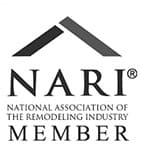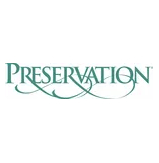Finding mold in your basement can be frightening as if left unchecked, it can lead to health problems and structural damage. An instruction manual for what to do when mold is discovered in your basement is provided below:
1. Determine the mold’s extent: Identify the scope and gravity of the mold issue. Consider working with a professional mold remediation specialist if the afflicted area is bigger than 10 square feet or if you have reason to believe there is concealed mold behind walls or other surfaces.
2. Take care of yourself: Make sure you have the proper personal protection equipment (PPE) before handling mold. To reduce exposure to mold spores, put on gloves, protective eyewear, and a respirator mask.
3. Find and fix the moisture source: Mold grows best in moist surroundings, therefore finding and fixing the moisture source is essential. Inspect your basement for leaks, water seepage, or elevated humidity levels. Improve ventilation, fix any water leaks, and, if required, use dehumidifiers.
4. Restrict the affected area: To stop mold spores from spreading to other areas of your house, create a containment zone around the moldy region. To prevent cross-contamination, cover vents and doorways with plastic sheeting and seal the area with duct tape.
5. Remove mold-infested items: It might be required to remove and discard porous materials like drywall, carpeting, or insulation if the mold has impacted them. To stop the materials from dispersing mold spores around your house, put them in bags.
6. Sanitize and clean non-porous surfaces: Apply a water and detergent solution to non-porous surfaces like concrete walls or tiles to clean them. To eliminate any lingering mold spores, use a solution of water and bleach (1 part bleach to 10 parts water) or a professional mold remover.
7. Thoroughly dry the area: After cleaning, make sure the basement is completely dry. Open windows, fans, and dehumidifiers can all help to circulate air and get rid of extra moisture.
8. Watch for symptoms of reoccurring mold growth: Keep an eye out for any mold growth in the basement. If there are any ongoing moisture problems, take immediate action to stop the growth of mold.
9. Consult with experts if necessary: If you’re not sure how serious the mold issue is or if you can’t handle its remediation properly on your own, speak with a mold remediation specialist. They are equipped with the knowledge and know-how to address more serious mold problems.
10. Take preventive action: Maintain sufficient ventilation, manage humidity levels, and treat any water leaks or moisture issues in your basement right once to stop future mold growth.
To preserve the safety of your home and the health of your family, it’s recommended to always get expert aid with mold cleanup if you have any questions or are dealing with substantial mold growth.














